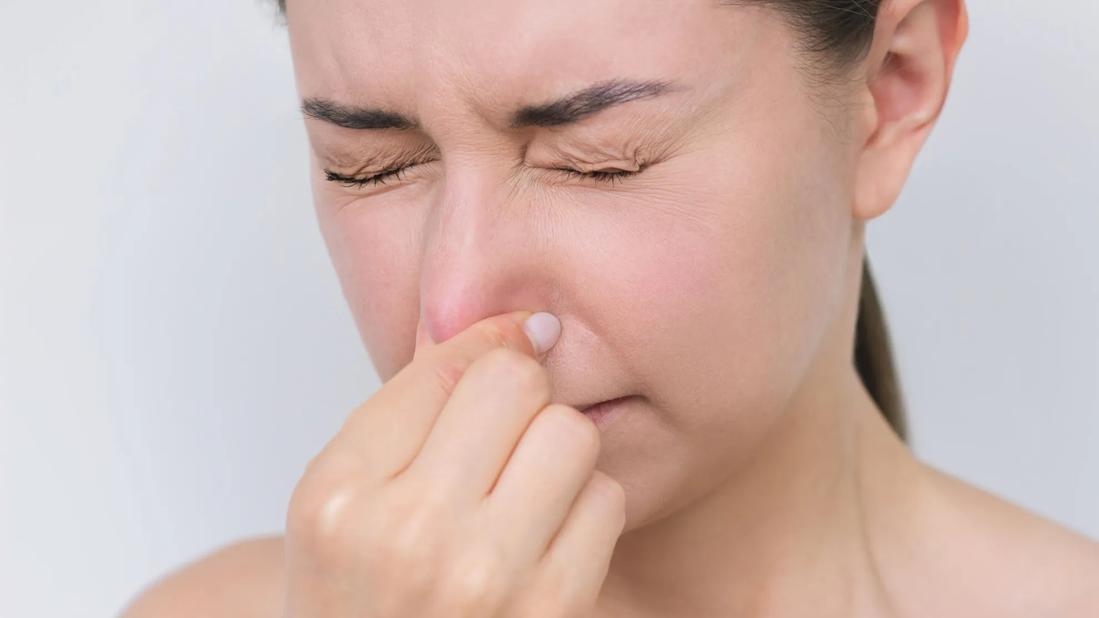You can find sweet relief by swallowing, yawning and doing specialized maneuvers

Image content: This image is available to view online.
View image online (https://assets.clevelandclinic.org/transform/53322513-a416-484e-92d6-7fed711778d4/pop-ears-1721129461)
Woman gently pinching ends of nose together
Sometimes, it’s only when things go a little awry that we start to realize just how much we take for granted. Like when you have a sinus infection. Or when allergy season is in full gear. Or when you’re on an airplane and ear congestion seems almost too much to bear.
Advertisement
Cleveland Clinic is a non-profit academic medical center. Advertising on our site helps support our mission. We do not endorse non-Cleveland Clinic products or services. Policy
You never quite appreciated that feeling of perfectly balanced airflow in your noggin until your ears plug up and you can’t get them to pop.
Have no fear, family medicine specialist Matthew Goldman, MD, is here to give you his best tips for popping your ears safely.
Sometimes, a clogged ear will go away by itself. Other times, you just can’t help but want to take matters into your own hands and find some relief. But there are right and wrong ways to go about it. So don’t believe any old advice you see on social media or that your best friend’s sister’s father-in-law swears by.
Before we get into the nitty-gritty of how-tos, let’s lay some groundwork.
Your middle ear is the part that starts just after your eardrum on either side of your head. It’s connected to the back of your throat by a tube called the eustachian tube (pronounced “you-STAY-shee-un”). You’ve got two of them — one behind each ear.
“The eustachian tubes help maintain balanced air pressure between the area behind your eardrum and the area outside of it,” Dr. Goldman explains.
When that balance goes ... off-balance, your ears feel full — and you feel that need to pop them.
So, popping your ears is a matter of unblocking your eustachian tube and balancing out the airflow. Here are five ways to do it.
Advertisement
The Valsalva maneuver helps relieve pressure by forcing air through your eustachian tubes. Here’s how to do it:
Bonus: The Valsalva maneuver can also be used for some people to quickly get an abnormal heart rate back to normal.
The Toynbee maneuver takes a different approach to opening your eustachian tubes. Rather than forcing air into them, this way helps to open the tubes. That allows air to get in.
Here’s how to do it:
Your eustachian tubes are typically closed. But they open when you swallow.
“When you open up the eustachian tubes, you give air a chance to get in, which can stabilize the pressure and allow your ears to pop,” Dr. Goldman explains.
This is why you may have heard people recommend chewing gum on airplanes. It’s not the gum itself that helps pop your ears. But gum creates saliva. So, as you repeatedly swallow that saliva, it can help open your tubes and keep the air flowing. Things like mints or sour candies can do the trick, too.
Like swallowing, yawning opens up your eustachian tubes to pop your ears. The bigger and more convincing the yawn, the better the chances it’ll do the trick.
Conditions like allergies and sinus infections are notorious for leading to clogged ears. That’s because they can come with a lot of blockage and inflammation that can alter the air pressure behind your ears.
In those cases, treating the symptoms and causes of your discomfort can help pop your ears. Try:
If you’re traveling in a plane, scuba-diving or in the midst of an allergic flare-up, your clogged ears likely aren’t a major problem and should resolve pretty quickly.
But clogged ears that persist for days on end or are accompanied by other symptoms can indicate a more serious issue, like an ear infection or swimmer’s ear. Chronic eustachian tube dysfunction isn’t common, but it needs medical attention and, in some cases, surgery.
And pay attention to issues like:
In these cases, it’s time to see a healthcare provider. They’ll be able to determine the root cause of your issues and figure out a treatment plan.
Bottom line? Usually, simple techniques can help restore balance and relieve pressure. But if your symptoms linger or worsen, don’t tough it out — talk to a healthcare provider to rule out a more serious issue. Sweet, sweet relief is on the way.
Advertisement

Sign up for our Health Essentials emails for expert guidance on nutrition, fitness, sleep, skin care and more.
Learn more about our editorial process.
Advertisement
Yes, ear pain can result from seasonal allergies, causing even more issues
Turning your head to the side and pulling your ear up and back is one common tactic for relief
Ear plugs, bathing caps, hydrogen peroxide and hair dryers can all help keep ears clean and dry
Not all ear infections need antibiotics — cold and warm compresses and changing up your sleep position can help
Ear infections can be painful, but essential oils may make the problem worse
Throat and ear pain that lasts more than four weeks deserves serious attention
How to find a fix for the itch
And two remedies to avoid at all costs
Prioritize your health by managing stress, strengthening your social connections and getting quality sleep
Bolsters, blankets, pillows and blocks can offer extra support, stability and comfort
Allergies, postnasal drip, asthma or reflux could be to blame for a cough that won’t quit